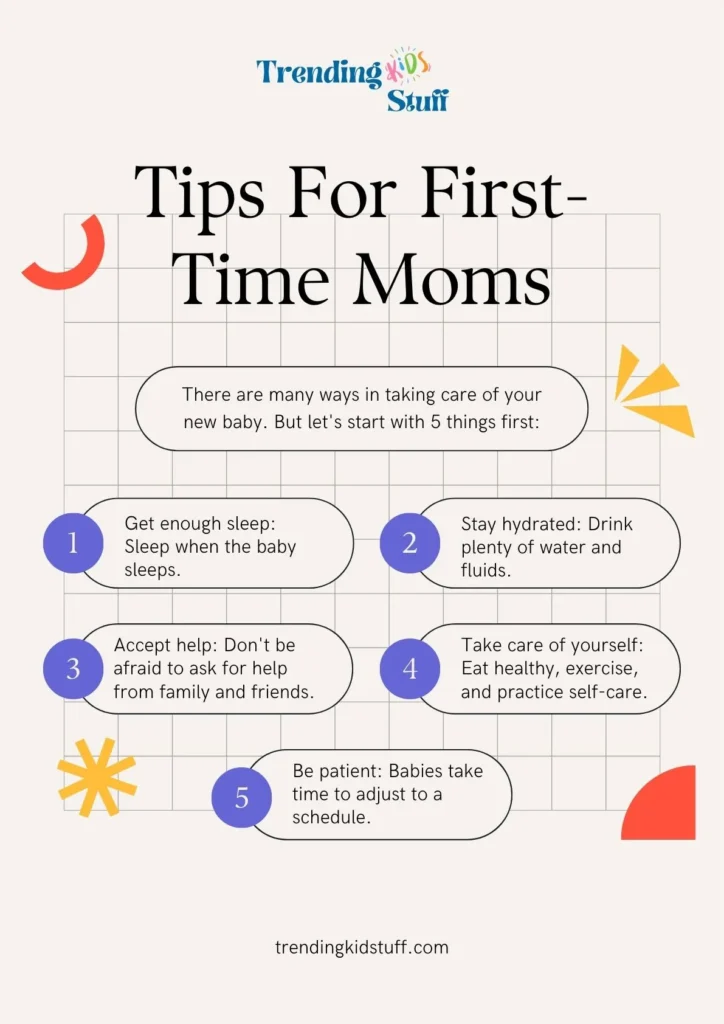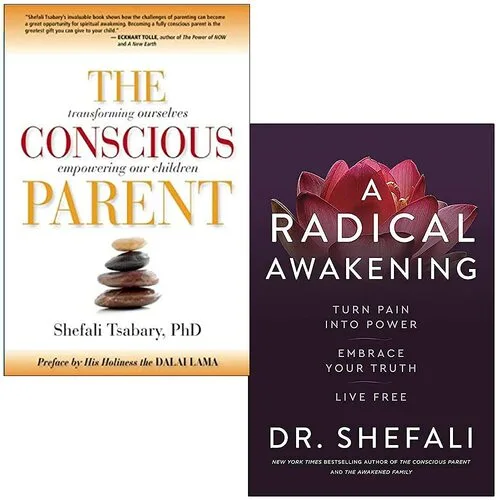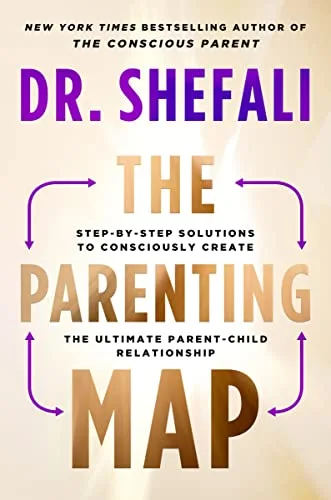Motherhood Unlocked: Best Advice For New Moms

Embarking on the incredible journey of motherhood is a life-changing experience for any woman. This transformative adventure is brimming with love, joy, and elation, making it one of the most rewarding milestones in life.
However, as much as it’s a delightful experience, it’s not without its hurdles, especially for first-time moms.
This article offers valuable advice for new moms, from a mom of two providing tips and support to help you navigate this exciting chapter.
The Heartwarming Moments of Being a Mama
Becoming a mama is a truly magical experience. From holding your baby for the first time to witnessing their first smile or giggle, these precious moments are the essence of motherhood. Cherish every milestone, from their first steps to their first words, and even the first time they say, “I love you.”
The unconditional love that flows between a mother and child is unparalleled. As a first-time mom, you’ll find immense fulfillment in providing comfort, and guidance, and watching your little one blossom into a happy, unique individual.
Navigating the Challenges of a First-Time Mom
While motherhood is filled with joy, it’s also rife with obstacles. Late-night feedings, soothing a fussy baby, sleep deprivation, and postpartum depression are just a few challenges new moms face. Balancing work and parenting can also be a significant test of your strength and resilience.
Financial difficulties may arise when considering the cost of childcare, but it’s important to remember that you’re not alone. Countless parents have faced these struggles before, and you can find solace in their shared experiences.
The Value of Seeking Advice for New Moms
As a new parent, you’re venturing into uncharted territory, which is why it’s crucial to seek guidance from experienced moms, professionals like doctors, nurses, midwives, or other trusted sources. While there’s a wealth of parenting tips available, not all advice will be relevant or accurate for your situation.
To ensure you’re making the best choices for you and your baby, consult reliable sources for the best advice for new moms. With the right support network and resources, motherhood can be one of the most extraordinary experiences of your life.

Preparing for Motherhood: Tips and Strategies
In the upcoming sections, we’ll delve deeper into tips for new moms, exploring various aspects of motherhood, from practical advice on managing everyday challenges to emotional support for nurturing your mental well-being. Stay tuned for valuable insights that will help you embrace and enjoy your new role as a first-time mom.
Preparation for Motherhood: Embracing Prenatal Care and Health
Pregnancy is a unique journey that calls for dedicated care. Regular prenatal check-ups with a healthcare provider are essential for safeguarding the health of both mama and baby. These visits serve to monitor progress, pinpoint any potential issues, and conduct necessary medical tests.
Starting prenatal care promptly after confirming your pregnancy is a piece of advice every new parent should heed. Another crucial tip is to maintain a nutritious diet rich in fruits, vegetables, whole grains, and protein-packed foods like lean meats or beans. Don’t forget the importance of prenatal vitamins for you and your developing baby.
Creating Your Tribe: Building a Support System
A robust support network can be a treasure trove of comfort and advice for new parents. This network can consist of family members, mom friends, expecting mothers in your circle, local mom groups, or online forums.
Conversations with other new mamas can offer a wealth of insights about childbirth, breastfeeding, and managing sleep deprivation.
One of the best tips for new moms is to have a trusted person who can assist with household tasks or take care of the baby when they need a breather. Don’t worry if things don’t always go as planned; even a little help can go a long way.
Baby-Proofing: Preparing Your Home for the Little One
Before welcoming your precious bundle of joy, it’s essential to ensure your home is a haven. Install smoke detectors in every room, especially near sleeping areas, and regularly check carbon monoxide levels.
Secure any loose cords or wires that could pose a threat to exploring little hands. Store harmful substances like detergents and cleaning supplies out of reach, and never leave your baby unattended on high surfaces like changing tables.
Bear in mind that preparing for motherhood is about more than accumulating adorable baby clothes. It requires thoughtful planning and preparation to create an environment where both you and your baby can flourish.
Fostering a Deep Connection: Bonding with Your Baby
The Power of Skin-to-Skin Contact and Breastfeeding
One of the most effective ways to bond with your newborn is through skin-to-skin contact. This method, where your baby is placed directly on your bare chest, offers a sense of warmth, comfort, and familiarity reminiscent of their time in utero.
Skin-to-skin contact can help regulate a baby’s vitals and stimulate hormones that foster bonding and breastfeeding success.
Breastfeeding is more than a feeding method; it’s a unique bonding experience that provides your baby with essential nutrients and antibodies. The act itself releases oxytocin, fostering feelings of relaxation and love in both mom and baby.
Exploring Babywearing and Co-Sleeping
Babywearing, where your baby is held close to your body in a carrier or wrap, is an excellent tool for bonding and convenience. It keeps babies stimulated by their surroundings while feeling secure near their parent’s heartbeat. Many parents find that babywearing promotes independent sleep habits over time.
Co-sleeping, or sharing a sleeping area with your baby, can benefit both parents and babies by promoting better sleep patterns. However, always follow safe co-sleeping guidelines, like avoiding soft bedding or pillows near the baby’s face.
Engaging with Baby through Reading, Singing, and Talking
Reading aloud to your baby is a simple yet powerful way to bond and promote language development. Similarly, singing can soothe and engage your baby, as infants are often attracted to their parent’s voices. Regularly talking to your baby throughout the day can stimulate brain development and provide comfort.
Ultimately, bonding with your newborn may require effort and patience, but it’s one of the most gratifying aspects of being a mom. Through various techniques like skin-to-skin contact, breastfeeding, babywearing, co-sleeping, and engaging your baby through reading, singing, and talking, you can build a profound bond that will endure.
Remember, every mom’s journey is unique, and babies don’t come with a manual. While parenting advice can be beneficial, don’t second guess your instincts. Take a deep breath, embrace the journey, and know that you’re doing an amazing job.
Pacifier Pros and Cons: What Every New Parent Should Know
One of the most common debates among new parents is whether or not to use a pacifier. Pacifiers can be a helpful tool for soothing a fussy baby, but it’s important to understand both the benefits and potential drawbacks.
Pacifiers can aid in reducing the risk of sudden infant death syndrome (SIDS), and they can also help your baby self-soothe. However, it’s essential to monitor their use to avoid potential issues like nipple confusion or over-reliance. As with all aspects of parenting, it’s about finding a balance that works best for you and your baby.
Navigating Motherhood with Confidence
Embarking on the journey of motherhood is a transformative and rewarding experience. Remember, while this advice for new moms aims to guide you, it’s your journey, and every experience is unique.
Trust your instincts, build your support network, and don’t be afraid to ask for help. After all, every new parent learns on the job.
In the coming sections, we’ll continue to explore more aspects of parenting, providing practical tips, and strategies to help you navigate this incredible journey. Stay tuned for more insights and remember to take each day one step at a time.

Managing Sleep Deprivation: Vital Advice for New Moms
Embracing motherhood brings profound joy, yet the early stages of motherhood can be challenging, particularly when coping with sleep deprivation. As a new mom, it’s natural to direct your attention toward your baby’s needs. However, it’s equally important to give yourself time to recharge.
Self-care is not a luxury but a necessity. Maintain a balanced diet, enjoy your hobbies when you can, and never shy away from seeking help and support. A well-rested mom can better adapt to the exciting changes that motherhood brings.
One piece of advice every mom should heed is to sleep when the baby is sleeping. It may be tempting to tackle household chores, but if you’re sleep-deprived, seize any opportunity to rest. If napping isn’t feasible due to other responsibilities, short power naps throughout the day can rejuvenate you.
Remember, caring for a newborn is a team effort. Partner support is invaluable during this period. If you can, share baby care duties with your partner. Open communication about your feelings and concerns can foster a nurturing environment for your newborn.
Feeding Your New Baby: Breastfeeding and Bottle-Feeding Tips
Breastfeeding provides nourishment for your newborn and fosters a unique bond between mother and baby. Yet, it can be challenging, especially for new moms. Seek professional guidance if needed, ensure a proper latch, and feed your baby frequently to stimulate milk production. Remember to hydrate yourself for a sufficient milk supply.
Even if it’s breastfeeding you choose, there’s no shame in exploring bottle-feeding options. For some, it may not always be feasible to breastfeed, and that’s ok. Select the appropriate formula, sterilize feeding equipment, follow preparation instructions, and use feeding time for bonding with your baby.
Introducing Solids: Guidance for Every Mom
Introducing solids is an exciting time for you and your baby. Start this journey with single-ingredient purees, introduce one new food at a time, and remember that breastfeeding or formula should remain the primary source of nutrition until your baby is six months old.
Tracking Developmental Milestones
Monitoring your baby’s development is crucial. Regular checkups with your pediatrician combined with at-home observation of their growth milestones will ensure they’re progressing well. Use milestone charts as a guide, but remember that babies develop at different rates.
To encourage physical, cognitive, and emotional development, shower your baby with love and affection. Engage them in physical activities, play stimulating games, read books aloud, and respond promptly to their needs.
While it’s beneficial to track developmental milestones, don’t hesitate to seek professional help if you have concerns. Early intervention is key, and professionals can offer a customized intervention plan to support your baby’s development.
In the journey of motherhood, nothing goes as planned. There will be sleepless nights, times of self-doubt, and moments when you need advice. But remember, it’s important to enjoy every minute, even the challenging ones.
With help, support, and the right words of wisdom, this journey will go smoothly. You’re doing great, and it’s perfectly fine to ask for help. Remember, what’s best for you and your baby is what truly matters.
According to the CDC, about 1 in 6 children between ages 3 to 17 will have one or more developmental disabilities. Cerebral palsy is a developmental motor disability that affects movement and posture. It can be caused by abnormal brain development or damage to the developing brain.
Cerebral Palsy Guide is a national support organization dedicated to educating individuals and their families about cerebral palsy and other developmental disabilities. We strive to provide answers and guidance to ensure that families receive the assistance they need to help improve their overall quality of life.
Finding a Balance: Work and Motherhood
Exploring Maternity Leave Options
Deciding to step back into your professional role as a new mom can be daunting. This is especially true when it comes to planning your maternity leave.
Early on, you need to trust in your ability to assess the optimal time to take a break from work, how long you can afford to be away, and whether you’ll opt for paid or unpaid leave.
Companies vary widely in their maternity leave provisions. Some provide short-term disability insurance that covers complications arising from pregnancy, offering a specific period of paid leave. Others provide a set number of weeks or months away from work, either paid or unpaid.
Understanding your needs and options is a critical first few weeks task, so you can plan effectively and avoid surprises further down the line.
Making Childcare Choices
Returning to work post-baby brings the significant concern of identifying secure, dependable childcare. New moms need to assess all possible childcare alternatives before settling on a decision. The ultimate list of choices runs from daycare centers and in-home care providers to nannies or babysitters who come to your home.
Each comes with its pros and cons, depending on factors such as budget, needed hours, location, and your child’s age. Don’t just evaluate cost and convenience when choosing a childcare provider; consider the experiences of other parents with your shortlisted providers.
Implementing Time Management Strategies
Balancing work and the early stages of motherhood demands top-notch time management skills. With the increase in daily responsibilities, from feeding schedules and diaper changes to nap times, setting realistic daily goals can help manage your schedule and carve out some much-needed personal time.
This might involve creating a daily to-do list and ranking tasks based on their importance. Delegating tasks when possible, meal planning, and utilizing scheduling apps are other time-saving strategies that can help busy moms stay on top of appointments, deadlines, and daily tasks.
Coping with Postpartum Depression
Recognizing the Signs
Postpartum depression, a common complication of childbirth, affects up to 1 in 7 women. Unlike the short-lived and mild mood disturbance known as “baby blues”, postpartum depression is longer-lasting and more severe.
Symptoms include feelings of sadness, worthlessness, guilt, loss of interest in activities, changes in appetite or sleep patterns, difficulty concentrating, and thoughts of self-harm or harming the baby. Early recognition of these symptoms is crucial since untreated postpartum depression can negatively impact both mother and baby.
Seeking Professional Help
If you suspect postpartum depression, it’s essential to seek help from a mental health professional as soon as possible. Your healthcare provider can refer you to a specialist in perinatal mood and anxiety disorders.
Treatment may include talk therapy, medication, or both. Remember, seeking help for postpartum depression doesn’t make you any less of a perfect parent; it shows that you’re proactive in taking care of yourself and your family.
Support from Loved Ones
Support from loved ones is a crucial part of managing postpartum depression. This includes your partner, family, friends, and other new moms who have faced similar experiences. Support can be emotional, such as listening without judgment, or practical, such as preparing meals or helping with household chores. Don’t hesitate to ask for help when you need it.
The Importance of Self-Care
Self-care is an essential part of managing postpartum depression. Taking care of yourself can improve your physical and emotional well-being, enhancing your ability to care for your baby. This includes getting adequate rest, eating healthily, staying hydrated, and engaging in physical activity. Also, set aside time for activities that bring you joy.
Final Thoughts…
Welcome to the exciting and challenging journey of being a mom! As a new mom, the first few weeks and months can be overwhelming, but remember, you’re doing your best. No one becomes a perfect parent overnight; it’s a process of learning and adapting. Remember to prioritize self-care, and don’t hesitate to seek help when needed.
As you step into motherhood, prioritizing your health during pregnancy is essential. Prenatal care is crucial to ensure both you and your baby are healthy. Surround yourself with a positive support system – people who can offer advice when needed.
Bonding with your baby is a key aspect of motherhood. From skin-to-skin contact to breastfeeding, babywearing, and talking to your baby, these moments of snuggling help strengthen the bond between you and your child.
While sleep deprivation can be challenging for new moms, remember to take care of yourself. Try to nap when the baby naps or ask for help from your partner or loved ones.
Feeding your baby is another essential task for a new mom. Whether you choose to breastfeed or bottle-feed, there are many resources available that offer tips on making feeding time less stressful for both you and your baby.
Watching your baby grow and develop is an exciting experience that comes with its own set of challenges. Be proactive in keeping track of developmental milestones while encouraging physical, cognitive, and emotional development in a way that suits you and your child best.
If the idea of returning to work after maternity leave seems daunting, there are various options available to make it more manageable, such as flexible schedules or remote work.
If you’re dealing with postpartum depression or anxiety, don’t ignore the signs – seek professional help if necessary and connect with others who have gone through similar experiences. Remember, you are not alone, and there is no one “right” way to be a mom.
Embrace the journey of parenthood and cherish the special moments with your baby. It’s okay to run to the store in your pajamas, it’s okay to have a sink full of dishes, and it’s okay if you panic and think you’re doing things differently from other moms.
Just go with the flow, and remember, you’re doing great! Every day, you’re becoming a better mom.








